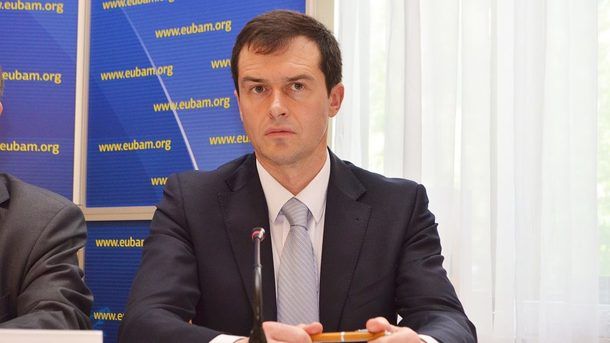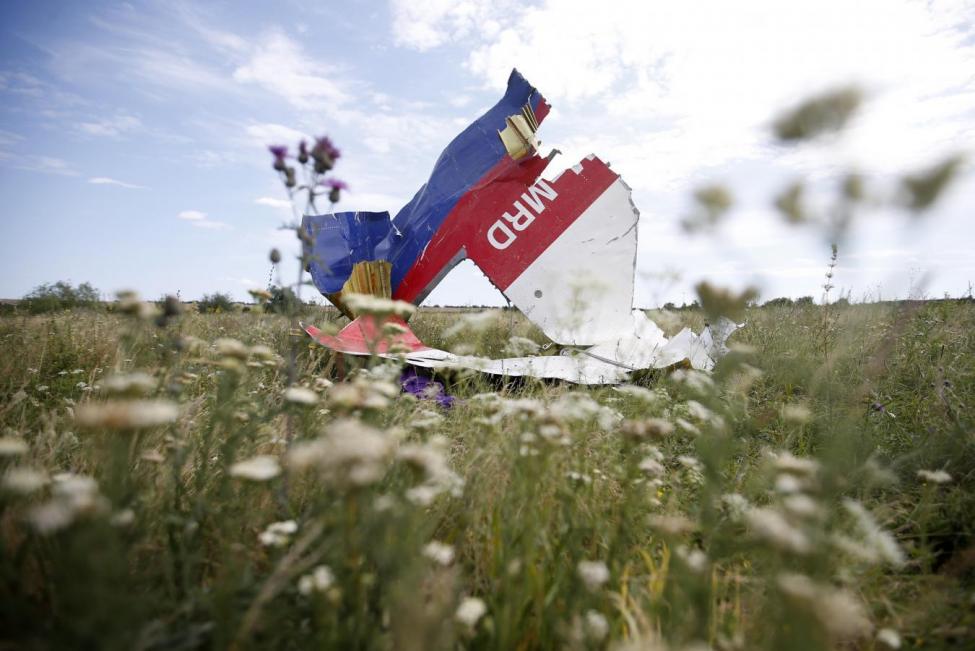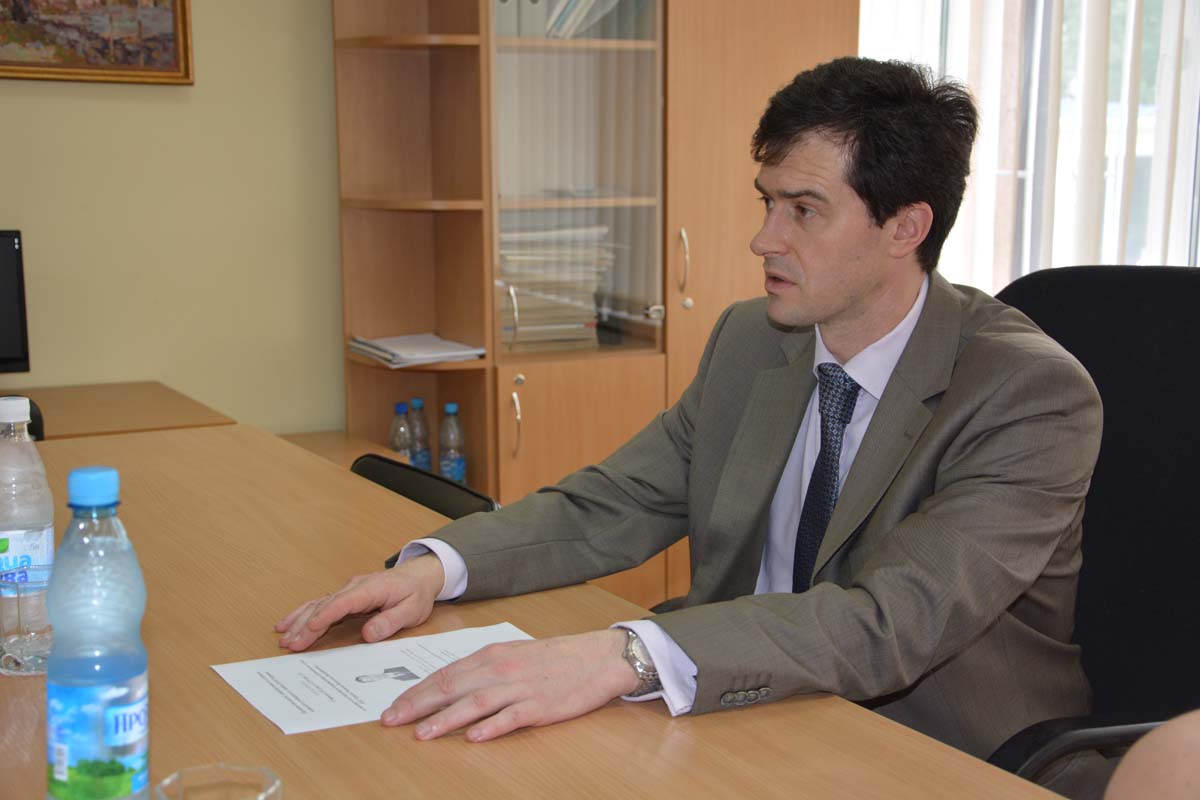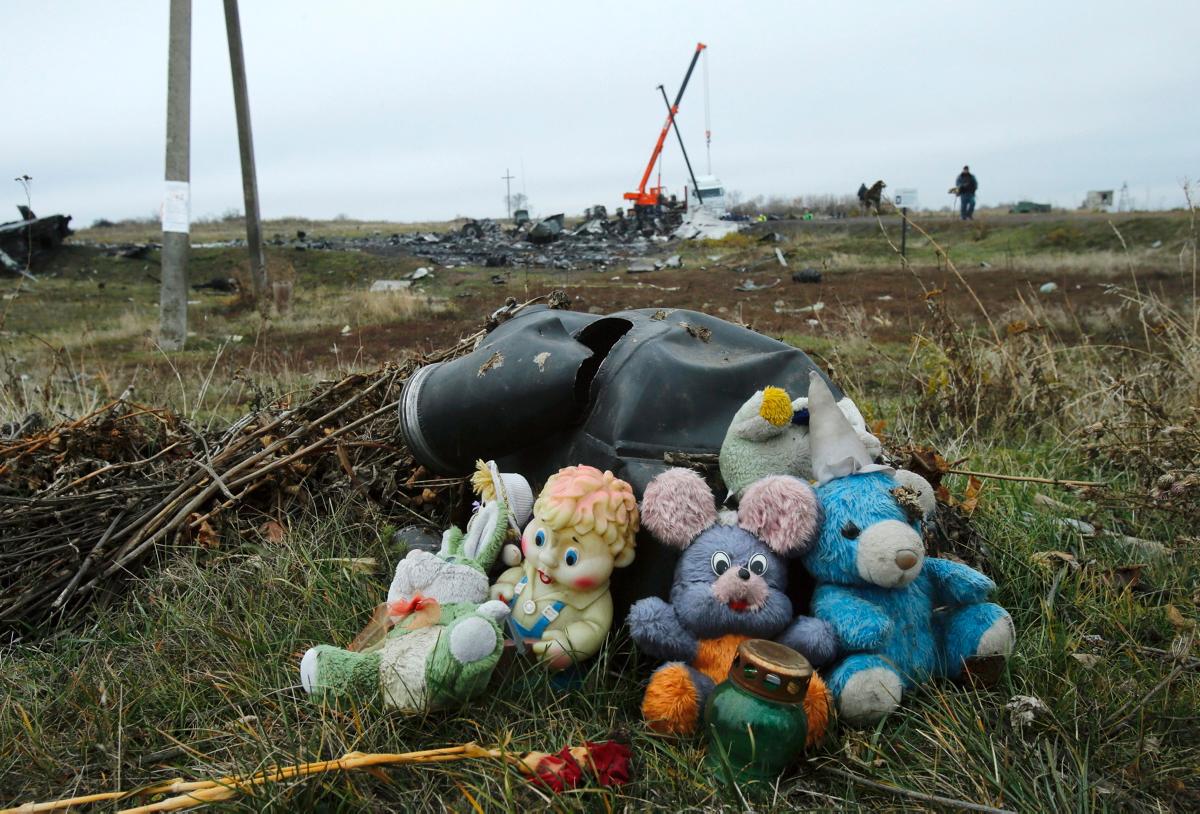
Ukraine's Ambassador to the Netherlands: "Russia is obliged to provide legal assistance [to the Netherlands] in criminal matters"
The Extraordinary and Plenipotentiary Ambassador of Ukraine to the Kingdom of the Netherlands, Vsevolod Chentsov, in his interview with UNIAN has told what the grounds were for making a decision to pass the right to prosecute those guilty of the MH17 crash to the Dutch court, when will this court start its hearings and whether anything is able to force Russia to cooperate in the criminal investigation.
The results of the investigation into the crash of the Malaysian Airlines Boeing 777, which took place on July 17, 2014, over the territory of Donetsk region occupied by pro-Russian militants, were officially promulgated by the Joint Investigation Group on September 28, 2016. Investigators found that the plane had been shot down by an anti-aircraft Buk missile delivered to Donbas from Russia, and 120 that people had been complicit in the crime.
In turn, the Kremlin claims that the report cannot be considered "final truth," calling the investigators' conclusions "preliminary." Moreover, Russia believes that the initiative by the states, whose law enforcement bodies are part of the JIT, on the need to establish an international MH17 tribunal, is an “interference in the internal affairs of the Russian Federation.” Therefore, it’s not surprising that Russia is blocking the decision to set up such tribunal.
That is why the international community had to explore other ways to punish those guilty of downing the plane and killing 298 people on board. On July 5, the Dutch Government said that the criminals would be tried in the Netherlands, in accordance with local legislation.
UNIAN spoke with the Extraordinary and Plenipotentiary Ambassador of Ukraine to the Kingdom of the Netherlands, Vsevolod Chentsov, about how parties to the JIT had reached an agreement, why such a decision had been made, whether anything was able to force Russia to cooperate in the criminal investigation, and why Ukraine has to conclude with the Netherlands a special agreement on the transfer of enforcement powers in this case.
Why do countries involved in the MH17 probe have refused from the idea of setting up an international tribunal?
Indeed, the most effective method of prosecution of those guilty of the crime could be a tribunal established in accordance with the UN Security Council resolution based on Part VII of the UN Charter. But in 2015 Russia blocked the corresponding decision on its establishment.
Therefore, the states whose law enforcement bodies participate in the Joint Investigation Team - Ukraine, the Netherlands, Australia, Belgium, and Malaysia - focused on two options. This is the creation of a tribunal based on an intergovernmental agreement between five countries on the transfer of the case under the national jurisdiction of a particular state.

I must say that both options had their cons and pros. Once a thorough analysis was completed, the choice was made in favor of prosecuting those guilty of the plane’s downing within the legal system of the Netherlands.
Why was the Netherlands chosen and not Ukraine? After all, MH17 was downed in its airspace.
The main advantages of this option was the tried and tested procedural criminal law and judicial system, the Dutch side's willingness to provide due process and, what is equally important, the fact that the Netherlands maintains a joint legal framework with many countries, including Russia, for legal assistance and extradition arrangements. In particular, according to the conventions of the Council of Europe, Russia is obliged to provide legal assistance in criminal matters. Taking into account Russia’s position on the MH17 issue, one can foresee that such cooperation will not be a smooth one, to put it mildly. Nevertheless, there exists a necessary legal framework for such cooperation, and everything will depend on the availability of political will on the Russian part.
Besides, it is crucial to depoliticize future trial as much as possible and to avoid even hypothetical allegations of any bias.

It should also be borne in mind that the overwhelming majority of victims in the crash are Dutch nationals (193 of 298 people killed in the attack). Thus, the participation of the victim’s families in the trial will be facilitated greatly. In addition, the trial at the national level will take less time than an international tribunal.
The letter of the ministers of justice and foreign affairs to the Dutch Parliament speaks of a bilateral agreement between the Netherlands and Ukraine. What exactly is it about and when can such an agreement be concluded?
Indeed, the transfer of the case to the Dutch court implies the conclusion of an agreement between Kyiv and the Hague on the transfer of relevant criminal proceedings, which will be signed in the near future.
The agreement will be based on multilateral instruments governing legal aid in criminal matters. At the same time, it will envisage practical aspects of the transfer of criminal proceedings, which are regulated neither by national laws of the two countries, nor by international treaties to which they are parties. That is precisely what it is about.
Ukraine has, from the very beginning, fruitfully interacted with the Netherlands within the framework of the JIT, which has been repeatedly noted by the Dutch side, and will continue to do so, including within the framework of the future bilateral agreement.

At the international level, Ukraine, together with the countries involved, will continue to use all relevant international platforms to support the international community at the final stages of the investigation and judicial proceedings. By the way, the Netherlands today, on behalf of all states involved in the investigation, informed the UN Security Council about the decision on the mechanism for prosecution, and requested the assistance to the investigation, as stipulated by UN Security Council Resolution #216 of July 21, 2014.
Is there any connection between future proceedings in the Dutch court in the MH17 case and Ukraine’s suit lodged with the UN International Court of Justice against the Russian Federation?
These lawsuits are "thematically" linked, but in the first case it is a case aimed at prosecution of individuals involved in the MH17 crash, and in the second case, it’s about the responsibility of the Russian Federation as a state for violating its obligations under the International Convention for the Suppression of the Financing of Terrorism. As we know, the downing of MH17 has been qualified by Ukraine’s law enforcers as terrorist act.
What could be the next step in this case? When will the trial begin?
The Joint Investigation Team is currently completing the preparation of the evidence base for the purpose of handing down an indictment. In this case, the quality of the materials that the Dutch Public Prosecution Service will submit to the court will be of fundamental importance. At the same time, there are reasons to hope that this will happen within the next few months.
Iryna Somer

